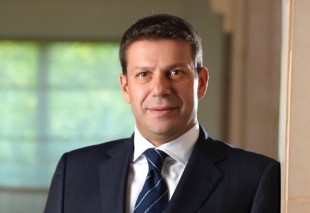

Comment: Know your value

As the UAE hotel industry matures, more hotels are undergoing refurbishment. We read announcements from operators proudly announcing their upgraded properties and excitedly increasing rates to match. Meanwhile, you will have noticed older hotels in visible need of renovation yet without work scheduled. Here, the operator tends to remain quieter, focused on driving sales volume and potentially losing out on rate to their new-look neighbour.
From the owner’s perspective, there are several factors to consider before embarking on a refurbishment. After all, it’s capital that could otherwise be spent on increasing their own asset portfolio.
For an owner weighing up whether to invest in an existing asset or pursue a new one, there are significant benefits to the former. An established asset already in operation is highly likely to deliver returns to an owner post renovation swiftly. Not only do hard refurbishment projects last approximately half the time of a greenfield development, upon relaunch performance stabilises relatively quickly. There is also less risk with investing into an existing asset; it’s a known entity with an operating track record.
Owners can choose to refurbish while in operation or close down the property and re-open post-renovation. We’ve tried both and it’s a case-by-case scenario. It depends on the condition of the asset, the extent of the refurbishment and whether it is possible to conduct operations without damaging the guest experience.
For example, two of our luxury resorts in Ras Al Khaimah are being reflagged in December, a process I will be discussing in detail during a panel session at AHIC 2017.
As a result, they will undergo refurbishment and repositioning. One is located in the desert, currently in its seventh year of operation and with standalone accommodation that is widely spread out, so here we can refresh the product without impacting guests by carefully phasing the works. The other resort is on the beach with villas located closer together, with a single access point for contractors and more significant work required; hence the owner’s decision to close for six months of renovation.
It’s not just the condition of the asset or its financial performance that an owner should consider when contemplating refurbishment. Occasionally a refurbishment project responds to evolving customer needs and expectations or trends in the market. There are times when it is the consumer forcing the hand of an owner to sign off the repositioning of an asset.
For owners seeking to acquire new assets, buying a property that appears to need refurbishment is also a viable option as long as the owner goes through proper due diligence. The condition of the asset is at the forefront of such decision. Sometimes these investment decisions can be impulsive, born out of a downwards adjustment in the market, but the presumed opportunity should not override the asset’s condition.
An owner might also use an economic downturn for refurbishment so as to benefit from lower construction costs, but this must be incredibly well-timed. Construction companies in the UAE don’t have an abundance of manpower to deploy, especially during an economic downturn.
On the flip side, when interest rates are high, owners can be reluctant to invest in their asset, especially if it requires a closure and loss of revenue. There are two probable scenarios impacting an owner’s decision. Owners that have fully recovered their investments will not rush to deploy new capital into their business. At the other end of the spectrum, owners might have significant debt obligations outstanding that will deter them from further investing in the properties.
Nobody can blame an owner in that position, however, I would advise that owners take time to consider the lifecycle of their asset. If we exclude market events, it’s fairly typical that a hotel past its prime performs in a diminished capacity. Refurbishment gives it a boost.
The last thing to really consider is asset valuation. Physical wear-and-tear is one thing, but the asset value is directly linked to its performance. If the business case for a potential renovation is that it will result in superior performance, then the ultimate benefit for an asset owner with the long view is increased asset valuation.
After all, no matter the asset, there is always an exit point and there will always be a potential buyer who will identify opportunity where a current owner does not.
About the Author: Yannis Anagnostakis is the CEO of RAK Hospitality Holding LLC. He will be speaking on a panel session at the Arabian Hotel Investment Conference 2017 (AHIC) entitled ‘The A-Z of Reflagging Your Property’. AHIC, which takes place from April 25-27 at Madinat Jumeirah in Dubai, is the premium knowledge and networking platform for hotel investors in the Middle East: www.arabianconference.com.